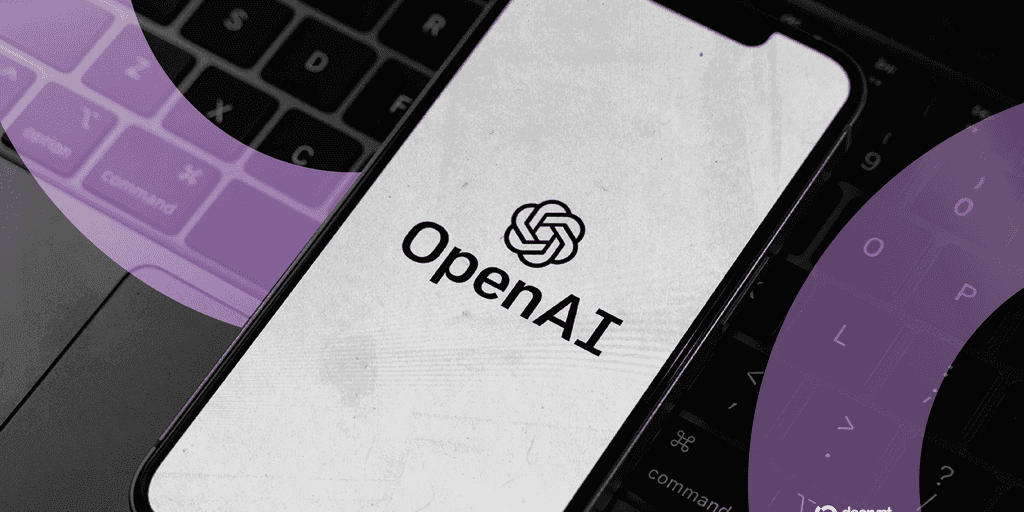Bengaluru AI Startup Revolutionizes Grading in UK Schools
2 Sources
2 Sources
[1]
Bengaluru innovators' AI start-up revolutionising marking in UK schools
The co-founders, both in their early 40s, estimate that the app could save teachers hundreds of hours a year spent marking, freeing up more time for teaching. They have seen their innovative app being rolled out in more than 50 secondary schools across the UK and is now attracting interest from schools and exam boards worldwide.An artificial intelligence (AI) based start-up founded by two innovators from Bengaluru claims to be revolutionising marking for teachers across secondary schools in the UK. sAInaptic, co-founded by fellow data scientists Dr Rajeshwari Iyer and Kavitha Ravindran as a side project, has since gone on to raise just under GBP 1 million from investors. Their app, which uses natural language processing and machine learning to mark pupils' answers and provide personalised feedback, is now in the process of beginning another funding round. "Teachers can spend around one day a week marking and giving feedback to students' work. Our app can accurately mark students' answers and provide instant feedback so that teachers can spend more time in the classroom," Iyer, who studied for a PhD in Computational Neuroscience at Imperial College in London, said in a statement this week. "We've already seen the impact that AI has had in other sectors and there is now a great opportunity for it to revolutionise education," she said. The co-founders, both in their early 40s, estimate that the app could save teachers hundreds of hours a year spent marking, freeing up more time for teaching. They have seen their innovative app being rolled out in more than 50 secondary schools across the UK and is now attracting interest from schools and exam boards worldwide. sAInaptic recently took part in Venture Trek, an initiative run by Imperial Enterprise Lab to give start-ups much-needed international exposure to grow their businesses. Ben Mumby-Croft, Director of Entrepreneurship at Imperial College London, said: "It's always inspiring to see our alumni turning their vision into an exciting business that can impact society. "Imperial Enterprise Lab has a successful track record of helping start-ups test new ideas and launch products, services and ventures that address real-world problems." As CEO of sAInaptic, Imperial alumnus Iyer is an experienced research scientist with an MPhil in Computational Biology from the University of Cambridge. She has over 12 years of experience in computational modelling and data science, complemented with a background in software development. Meanwhile, Ravindran as the Chief Content Officer has a PGCE in secondary science from the University of Cambridge, with over 12 years of experience as a secondary science schoolteacher and GCSE examiner. She is responsible for directing the development of sAInaptic's content in line with the various curricula and leading the pedagogical aspects of the platform. sAInaptic is a play on the word synapse, which is the junction between nerve cells that helps in the transfer of information from one neuron to the next. The strength of the synaptic network in the human brain dictates the consolidation of information from our short-term to long-term memory. The co-founders explain that the platform is designed with ease of use in mind which means that getting started is simple and fast, with a "user-friendly interface that makes navigating the system a pleasure". "Setting up your marking process takes just a few clicks, and you're ready to go. Our AI handles the bulk of the work, quickly and accurately marking hundreds of student answers within seconds," they note. sAInaptic is about to begin a new funding round and introduce its International General Certificate of Secondary Education (IGCSE) - an English language-based secondary qualification for students aged 14-16 - offered to international schools, and expanded into the vocational and certification sector. Imperial College London said its Enterprise Lab supports more than 2,000 students each year with mentoring, access to experts and funding programmes. Start-ups supported by Imperial Enterprise Lab are among the most successful in Europe with a three-year survival rate of 72 per cent, the leading UK university said.
[2]
Bengaluru innovators' AI start-up revolutionising marking in UK schools
An artificial intelligence (AI) based start-up founded by two innovators from Bengaluru claims to be revolutionising marking for teachers across secondary schools in the UK. sAInaptic, co-founded by fellow data scientists Dr Rajeshwari Iyer and Kavitha Ravindran as a side project, has since gone on to raise just under GBP 1 million from investors. Their app, which uses natural language processing and machine learning to mark pupils' answers and provide personalised feedback, is now in the process of beginning another funding round. "Teachers can spend around one day a week marking and giving feedback to students' work. Our app can accurately mark students' answers and provide instant feedback so that teachers can spend more time in the classroom," Iyer, who studied for a PhD in Computational Neuroscience at Imperial College in London, said in a statement this week. "We've already seen the impact that AI has had in other sectors and there is now a great opportunity for it to revolutionise education," she said. The co-founders, both in their early 40s, estimate that the app could save teachers hundreds of hours a year spent marking, freeing up more time for teaching. They have seen their innovative app being rolled out in more than 50 secondary schools across the UK and is now attracting interest from schools and exam boards worldwide. sAInaptic recently took part in Venture Trek, an initiative run by Imperial Enterprise Lab to give start-ups much-needed international exposure to grow their businesses. Ben Mumby-Croft, Director of Entrepreneurship at Imperial College London, said: "It's always inspiring to see our alumni turning their vision into an exciting business that can impact society. "Imperial Enterprise Lab has a successful track record of helping start-ups test new ideas and launch products, services and ventures that address real-world problems." As CEO of sAInaptic, Imperial alumnus Iyer is an experienced research scientist with an MPhil in Computational Biology from the University of Cambridge. She has over 12 years of experience in computational modelling and data science, complemented with a background in software development. Meanwhile, Ravindran as the Chief Content Officer has a PGCE in secondary science from the University of Cambridge, with over 12 years of experience as a secondary science schoolteacher and GCSE examiner. She is responsible for directing the development of sAInaptic's content in line with the various curricula and leading the pedagogical aspects of the platform. sAInaptic is a play on the word synapse, which is the junction between nerve cells that helps in the transfer of information from one neuron to the next. The strength of the synaptic network in the human brain dictates the consolidation of information from our short-term to long-term memory. The co-founders explain that the platform is designed with ease of use in mind which means that getting started is simple and fast, with a "user-friendly interface that makes navigating the system a pleasure". "Setting up your marking process takes just a few clicks, and you're ready to go. Our AI handles the bulk of the work, quickly and accurately marking hundreds of student answers within seconds," they note. sAInaptic is about to begin a new funding round and introduce its International General Certificate of Secondary Education (IGCSE) - an English language-based secondary qualification for students aged 14-16 - offered to international schools, and expanded into the vocational and certification sector. Imperial College London said its Enterprise Lab supports more than 2,000 students each year with mentoring, access to experts and funding programmes. Start-ups supported by Imperial Enterprise Lab are among the most successful in Europe with a three-year survival rate of 72 per cent, the leading UK university said.
Share
Share
Copy Link
A Bengaluru-based AI startup, Merlyn Mind, is transforming the grading process in UK schools with its innovative AI technology. The company's solution aims to reduce teacher workload and improve assessment efficiency.

Bengaluru Startup Tackles Education Challenges with AI
In a groundbreaking development, a Bengaluru-based artificial intelligence startup is making waves in the United Kingdom's education sector. Merlyn Mind, founded by Satya Nitta, has introduced an AI-powered solution that is revolutionizing the way teachers grade assignments and provide feedback to students
1
.Addressing Teacher Workload
The innovative technology comes at a crucial time when teachers in the UK are grappling with excessive workloads. Recent reports indicate that UK teachers work some of the longest hours among educators in developed nations, with a significant portion of their time dedicated to grading and administrative tasks
1
.AI-Powered Grading Solution
Merlyn Mind's AI system is designed to streamline the grading process by automating routine tasks. The technology can efficiently grade multiple-choice questions, short answers, and even essays, providing consistent and objective assessments. This automation allows teachers to focus more on personalized instruction and student engagement
2
.Improving Feedback Quality
One of the key advantages of the AI system is its ability to generate detailed feedback for students. By analyzing patterns in student responses, the AI can offer specific suggestions for improvement, helping students understand their mistakes and learn from them more effectively
2
.Pilot Programs and Early Success
Merlyn Mind has already implemented pilot programs in several UK schools, with promising results. Teachers report significant time savings and improved consistency in grading. Students have also responded positively to the more detailed and timely feedback they receive
1
.Related Stories
Addressing Concerns and Challenges
While the AI grading system has shown great potential, it has also raised questions about the role of human judgment in education. Merlyn Mind emphasizes that their technology is designed to support teachers, not replace them. The company is working closely with educators to refine the system and ensure it aligns with pedagogical best practices
2
.Future Prospects and Expansion
As Merlyn Mind continues to refine its technology, there is growing interest from educational institutions beyond the UK. The company is exploring partnerships with schools in other countries, including the United States and India, to bring its innovative solution to a global audience
1
.References
Summarized by
Navi
Related Stories
Recent Highlights
1
ByteDance Faces Hollywood Backlash After Seedance 2.0 Creates Unauthorized Celebrity Deepfakes
Technology

2
Microsoft AI chief predicts artificial intelligence will automate most white-collar jobs in 18 months
Business and Economy

3
Google reports state-sponsored hackers exploit Gemini AI across all stages of cyberattacks
Technology








